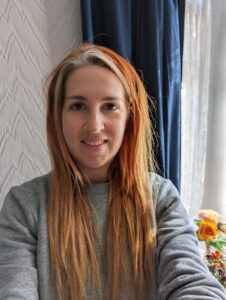University of Oxford
11a Mansfield Rd
OX1 3SZ
UK
Rebecca Young
Background
During my PhD investigating the decline of the European turtle dove, one of the UK’s most rapidly declining bird species, I completed a placement with Durrell Wildlife Conservation Trust, and was truly inspired by the amount this relatively small conservation organisation has achieved over the years.
Since completing my PhD I have had the privilege of joining this organisation and being part of their collaboration with the University of Oxford working on the IUCN Green Status of Species. This role helps me feel engaged with work being done across the world, as I help conservation practitioners understand how their work is contributing to species recovery.
Research Interests
During my undergraduate degree, I discovered a fascination in parasitology, with the amazing dynamics of host-parasite interactions, as well as some level of morbid curiosity, piquing my interest. This is where my work in research began, as I completed my Master of Research degree in parasite ecology, investigating the dynamics of parasite infection and co-infection in three-spined stickleback. As my career progressed, I wanted to combine this interest in parasitology with my passion for conservation, undertaking a PhD at Cardiff University, in collaboration with the RSPB to investigate the drivers of decline in the European turtle dove. My work used molecular techniques to gain greater understanding of the diet of this species, infection dynamics of the parasite Trichomonas galliane, and the relationship between diet and infection status. As I have moved through my career, my focus has shifted away from disease more towards the implications of practical conservation, but parasitology will always remain a strong interest of mine
Current Research
I am currently working on the continued development of the IUCN Green Status of Species. This tool has been introduced as an additional aspect of the Red List, as a standardised method for conservation practitioners to assess the impact of conservation, by measuring species recovery at a global level. My work will develop the Green Status for use at a programme level, resulting in guidelines for practitioners to use the Green Status framework to assess the contribution of particular sites, countries, organisations and programmes to the overall recovery of a species.
Brief CV
Qualifications
2017 – 2022 Cardiff University Ph.D. (Molecular Ecology)
2014 – 2015 University of Nottingham M.Res. (Parasitology) : Distinction
2010 – 2013 University of Nottingham B.Sc. (Biological Sciences) : First class
Awards
- International Training and Fieldwork Award: British Society for Parasitology, £1211.00 (January 2019 – January 2020)
- Communicating Your Science Workshop: Genetics Society, fully funded place on three day workshop (24th – 26th April, 2019)
- Heredity fieldwork grant: Genetics Society, £1484.74 (May 2018 – May 2019)
- Competition studentship: Natural Environment Research Council, £78,717.50 (October 2017-March 2021)
Papers
- Young, R.E., Dunn, J.C., Vaughan, I.P., Mallord, J.W., Orsman, C. J., Lormé, H., Eraud, C., Kiss, O., Drake, L.E., Marchbank, A., Symondson, W.O.C., (in preparation for re-submission to Environmental DNA). The role of cultivated vs. wild seeds in the diet of European turtle doves (Streptopelia turtur) across European breeding and African wintering grounds
- Drake, L.E., Cuff, J.P., Young, R.E., Marchbank, A., Chadwick, E.A. and Symondson, W.O.C., (2021). An assessment of minimum sequence copy thresholds for identifying and reducing the prevalence of artefacts in dietary metabarcoding data. Methods in Ecology and Evolution.
- Young, R. E. & MacColl A.D., (2017). Spatial and temporal variation in macroparasite communities of three-spined stickleback. Parasitology (144), pp. 436-449

